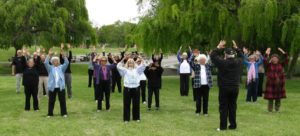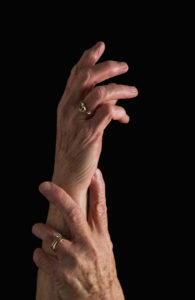Improve Psychological Health with Online Mindfulness Training
By John M. de Castro, Ph.D.
“The research is strong for mindfulness’ positive impact in certain areas of mental health, including stress reduction, emotion and attention regulation, reduced rumination, for reducing mild to moderate depression and anxiety, and preventing depressive relapse.” – Kelle Walsh
Mindfulness training has been shown through extensive research to be effective in improving physical and psychological health and particularly with the physical and psychological reactions to stress. The vast majority of the mindfulness training techniques, however, require a certified trained therapist. This results in costs that many clients can’t afford. In addition, the participants must be available to attend multiple sessions at particular scheduled times that may or may not be compatible with their busy schedules and at locations that may not be convenient. As an alternative, online mindfulness training programs have been developed. These have tremendous advantages in decreasing costs, making training schedules much more flexible, and eliminating the need to go repeatedly to specific locations. There is evidence that mindfulness programs delivered online can be quite effective. But there is a need to further investigate the effectiveness of these programs as an alternative to face-to-face trainings.
In today’s Research News article “The Effects of an Online Mindfulness Intervention on Perceived Stress, Depression and Anxiety in a Non-clinical Sample: A Randomised Waitlist Control Trial.” (See summary below or view the full text of the study at: https://www.ncbi.nlm.nih.gov/pmc/articles/PMC6244637/ ), Querstet and colleagues recruited adult participants online and randomly assigned them to either a wait-list control condition or to receive a 4-week online mindfulness course. The course was implemented with audio and video components and required about 2 hours each week and additional homework. The participants were measured before and after the training for mindfulness, perceived stress, anxiety, and depression. After the wait-list controls completed their mindfulness training they completed follow-up measures at 3 and 6 months after the training.
They found that in comparison to the wait-list controls, the participants who received mindfulness training had significant reductions in perceived stress, anxiety, and depression. There were also significant increases in mindfulness including the observing, describing, acting with awareness, and non-judging facets. These effects were sustained 3 and 6 months after the completion of training. They also found that the decreases in perceived stress, anxiety, and depression, produced by the intervention were mediated by the increases in the non-judging facet of mindfulness. The effect on depression was also meditated by the describing facet of mindfulness.
It is interesting that the facet of mindfulness that appeared to have the greatest impact on the psychological health of the participants was non-judging. Hence, being able to be aware of varied experiences simply as experiences and not judging them is a key to improved psychological well-being. This makes sense as most of the things that happen to an individual are not under their control. What can be controlled are the reactions to the experiences. These are best accomplished if they can be seen as not good or bad, important or trivial, or due to some personal characteristic, but simply as they are.
The results add to the accumulating evidence that mindfulness can be trained online and that it produces similar benefits as face-to-face training. This is very important as this makes mindfulness training inexpensive and available to a very large population regardless of schedule and location. This makes it possible to bring the benefits of mindfulness training, promoting psychological health and well-being, to a wide audience.
So, improve psychological health with online mindfulness training.
“Mindfulness helps to train individuals in bringing back the attention time and time again when it has wandered. And it is precisely through helping individuals to not get carried away by their thoughts that mindfulness has been shown to be so effective for conditions like anxiety and depression.” – Carolyn Gregoire
CMCS – Center for Mindfulness and Contemplative Studies
This and other Contemplative Studies posts are also available on Google+ https://plus.google.com/106784388191201299496/posts and on Twitter @MindfulResearch
Study Summary
Querstret, D., Cropley, M., & Fife-Schaw, C. (2018). The Effects of an Online Mindfulness Intervention on Perceived Stress, Depression and Anxiety in a Non-clinical Sample: A Randomised Waitlist Control Trial. Mindfulness, 9(6), 1825–1836.
Abstract
Mindfulness interventions have been shown to be effective for health and wellbeing, and delivering mindfulness programmes online may increase accessibility and reduce waiting times and associated costs; however, research assessing the effectiveness of online interventions is lacking. We sought to: (1) assess the effects of an online mindfulness intervention on perceived stress, depression and anxiety; (2) assess different facets of mindfulness (i.e. acting with awareness, describing, non-judging and non-reacting) as mechanisms of change and (3) assess whether the effect of the intervention was maintained over time. The sample was comprised of 118 adults (female, n = 95) drawn from the general population. Using a randomised waitlist control design, participants were randomised to either an intervention (INT) or waitlist control (WLC) group. Participants completed the online intervention, with the WLC group starting after a 6-week waitlist period. Participants completed measures of depression (PHQ-9), anxiety (GAD-7) and perceived stress (PSS-10) at baseline, post-treatment, 3- and 6-month follow-up. Participants who completed the mindfulness intervention (n = 60) reported significantly lower levels of perceived stress (d = − 1.25 [− 1.64, − 0.85]), anxiety (d = − 1.09 [− 1.47, − 0.98]) and depression (d = − 1.06 [− 1.44, − 0.67]), when compared with waitlist control participants (n = 58), and these effects were maintained at follow-up. The effect of the intervention was primarily explained by increased levels of non-judging. This study provides support for online mindfulness interventions and furthers our understanding with regards to how mindfulness interventions exert their positive effects.
https://www.ncbi.nlm.nih.gov/pmc/articles/PMC6244637/









